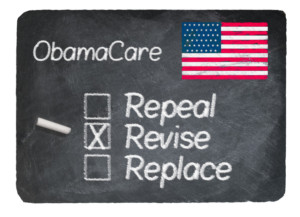
Thousands of doctors who bill Medicare used questionable addresses, GAO report finds
By CHRISTOPHER WEAVER :Updated July 21, 2015 8:09 p.m. ET
Thousands of medical providers signed up to bill Medicare using questionable addresses, and dozens of doctors enrolled despite disciplinary actions by state medical boards, according to a congressional probe of the $600 billion-a-year taxpayer-funded program.
Medicare records listed doctors and other providers as practicing at invalid addresses, such as commercial mailbox stores, construction sites and, in one case, a fast-food restaurant, according to a report by the Government Accountability Office that examined data through March 2013.
Over the past five years, the federal Centers for Medicare and Medicaid Services, which runs Medicare, has been revamping its enrollment system and verifying provider information, such as addresses and licensure. The overhaul is partly due to requirements of the 2010 Affordable Care Act. The CMS said Tuesday that as a result of its enhanced screening efforts, it has kicked more than 34,000 providers out of the program since February 2011.
The GAO says that some screening problems persist, however, among the 1.8 million providers enrolled to bill Medicare from nearly a million addresses. The report estimated that about 23,400 addresses might be invalid.
The 2.3% of provider addresses the GAO estimated might be invalid could be the results of data-entry errors, according to written responses to the GAO by Jim Esquea, the assistant secretary for legislation for the federal Department of Health and Human Services.
CMS said some provider locations flagged in the GAO report didn’t turn out to be fraudulent. For instance, the provider who listed the fast-food location had a valid medical office elsewhere and hadn’t billed the program between 2005 and 2013.
“Fundamentally, the [2010 health law] created enrollment and screening and required a risk-based approach,” said Shantanu Agrawal, the director of Medicare’s Center for Program Integrity, which implemented the new screening rules. “We have taken off from that [to] clearly a much more proactive stance,” he said in an interview.
However, he added, “the moment a physician enters their data, it starts to change,” noting that keeping up with doctors on matters like licensure requires many data sources.
The GAO posted its report online after The Wall Street Journal reported the findings.
It isn’t clear how much Medicare has paid out to providers whose addresses have been shown to be invalid. The agency estimates that overall, it made $44.2 billion in improper overpayments to medical providers in the fiscal year ended Sept. 30, 2014—a figure that includes payments to ineligible providers, for services that aren’t covered and duplicate payments, among other things.
“Historically, provider enrollment has been a broken process, and it hasn’t received enough funding or attention,” said Ryan Stumphauzer, a former federal prosecutor who specialized in health-care fraud and who is now a partner at the Miami law firm O’Quinn Stumphauzer & Sloman. “That is the first opportunity to keep bad providers out, before they ever submit a fraudulent claim.”
A Page One article in the Journal in December examined Medicare’s efforts to improve screening of medical providers who enroll in the program for the elderly and disabled, including some weaknesses in that system. For instance, Medicare’s contractors aren’t required to visit the practice locations of providers deemed low-risk, such as doctors’ offices or laboratories. By contrast, some providers, such as new home-health companies, are inspected before they can begin billing. The agency said it has done 250,000 site visits since early 2011.
“The system is much tighter” now than before a recent string of changes, such as license verification, site visits for some providers and even background checks in some cases, said Ted Doolittle, a former deputy director of Medicare’s program integrity unit. However, he said data-entry errors—like inaccurate addresses—might be hard to get doctors to correct.
“At the end of the day, mistakes are going to be made,” Mr. Doolittle said. “From a systemic standpoint, that is OK.”
The GAO probe used U.S. Postal Service records to identify about 105,000 addresses for Medicare providers that were potentially invalid, out of the roughly one million used by those doctors, therapists and other providers. The GAO estimated about 22% of those 105,000 addresses in fact appeared to be invalid, based on further research on a sample of 496 addresses. The estimated number of problem addresses represented about 2.3% of the 980,000 addresses in Medicare’s provider-enrollment records at the time of the report. The study didn’t rule out that addresses might be out of date or the result of clerical errors.
A Medicare spokesman said that of the 92 problematic addresses the GAO identified in its sampling, about 65 had already been corrected, deactivated or revoked prior to the probe. The agency said 15 were legitimate providers who had moved and the remaining 12 were revoked as a result of the GAO report.
Of the roughly 1.8 million providers enrolled to bill the federal Medicare program, around 1.3 million are doctors, according to the GAO. Some receive little or no payment, however.
A second part of the GAO study examined screening for violations of state medical board rules that might have resulted in doctors’ licenses being revoked or suspended. Under Medicare rules, such doctors may not be eligible to bill the program.
Doctors must have a current license to bill Medicare. While Medicare verifies licenses used to enroll in the state where a doctor currently practices, the GAO says the agency doesn’t check whether a doctor may have been censured by medical boards in other states.
Under some circumstances—such as when providers’ licenses are suspended, when they are convicted of certain crimes or when law enforcement makes credible allegations of fraud—the agency can act to revoke their billing privileges.
The GAO found 147 cases through March 2013 of doctors who had been censured by medical boards in another state, but had been allowed to get or maintain billing privileges in the program. Medicare paid 47 of the doctors $2.6 million during the period when it could have barred them, the report said.
In one case, a California doctor’s license was suspended in 2008 due to sexual misconduct. The doctor later received a Missouri license and enrolled to bill Medicare there in 2010, the GAO said. The doctor didn’t report the California disciplinary action, and Medicare’s contractor only verified the Missouri license, the report said.
The Medicare spokesman said the agency had revoked 43 of the 147 providers’ billing privileges prior to the GAO report and had revoked 19 as a result of it. The remaining 85 didn’t require any action, the agency said, for instance because the provider hadn’t billed claims during a short suspension or had already left the system. The agency said its now-routine licensure-monitoring efforts had resulted in 7,383 revocations since 2011.
Medicare said in its responses that it doesn’t have authority to require providers to report licenses for states in which they aren’t enrolled to bill the program, but that it would attempt to “make certain that all applicants’ license information is evaluated as part of the screening process.”
Questions about Physician Credentialing and Revalidation ? or other changes in Medicare, Commercial Insurance, and Medicaid billing, credentialing and payments? Call the Firm Services at 512-243-6844 or [email protected]



